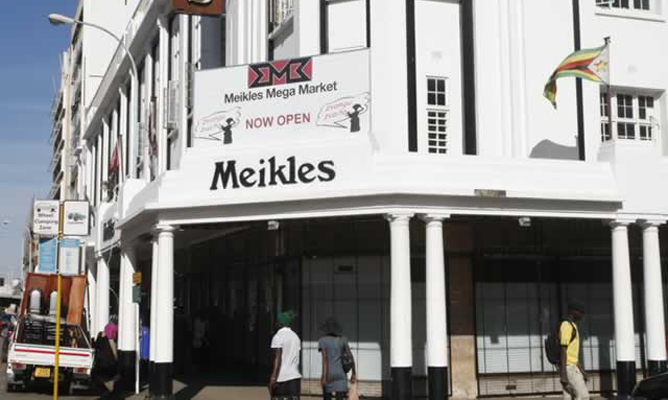
Meikles Limited will spend $1, 5 million on 15 new mega market stores next year, as it targets lower income earners to add to its existing revenue.
BY TATIRA ZWINOIRA
This comes after the launch of its new Barbours store in a Harare suburb, the third after Gweru and another store close to the city centre.

Speaking to NewsDay at the launch of the new Barbours store last week, Meikles Retail managing director, Phil Ellse, said the company was hoping to have at least 50 mega mart stores in the next three years.
“Where our big growth will be coming from in the retail division is with our Meikles Mega Market stores. We are going to go to places like Gokwe, Chitungwiza, Makoni, Bindura and Gweru. So with mega markets we are hoping to have up to 50 in the next three years. Next year we plan to roll out 15, that will cost about $1,5 million and then an additional 10 or 12 depending on the reactions,” Ellse said.
“We will not take this concept to too many smaller towns until we see that there is critical mass within the town. We are currently sitting on eight outlets and it’s a new concept store that has been there for two and a half years for the very bottom end of the market.”
He said that the mega market stores are about 12% cheaper than their other retail outlets.
- Chamisa under fire over US$120K donation
- Mavhunga puts DeMbare into Chibuku quarterfinals
- Pension funds bet on Cabora Bassa oilfields
- Councils defy govt fire tender directive
Keep Reading
With the strengthening of the United States dollar, consumers are able to buy more on the dollar as, in regional countries when converted, as their local currencies are weaker than the dollar.
Retailing contributes about 10% to the economy which has other challenges besides imports being uncompetitive prices, liquidity constraints, lack of borrowing and credit facilities, high rentals, lack of disposable income and the informal market.
Ellse said they want to also introduce Barbour’s stores to more suburbs towards low income earners.
“We want to take a Barbour’s concept store closer to the people our products are a lot more affordable than the years past. We offer a credit facility, no cheap imports and we believe we need to offer convenience for the consumer,” Ellse said.
The impact of imports has seen a cumulative trade imbalance over $18 billion over the past five years, which translates to the loss of approximately 100 000 jobs.
Statistics reveal the rapid contraction of the economy, as consumers continue to exercise broader shopping options, forcing retailers to develop tailored supply chain capabilities that optimise cost and meet service commitments.











